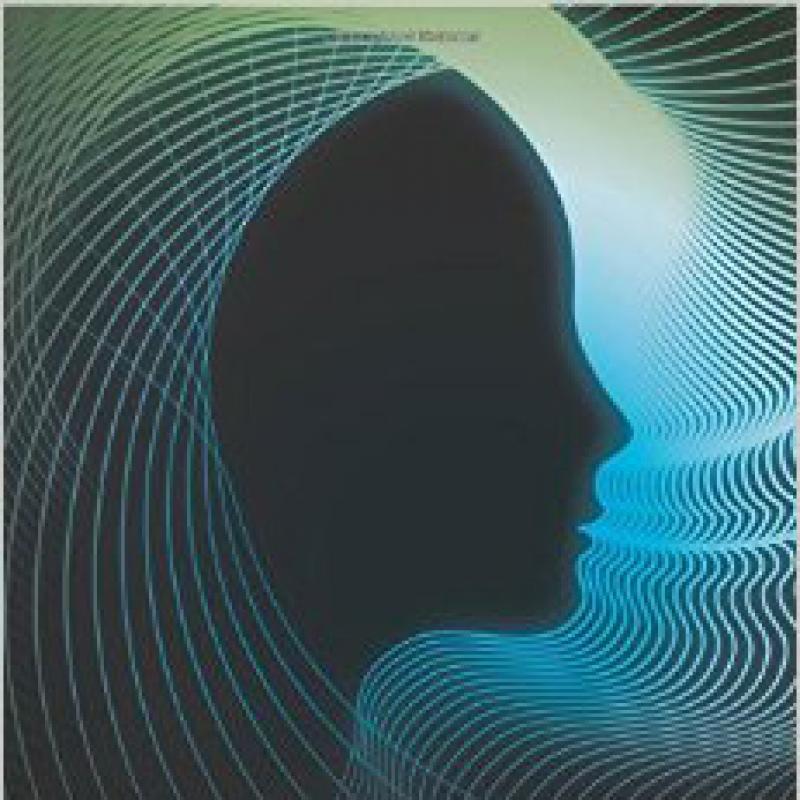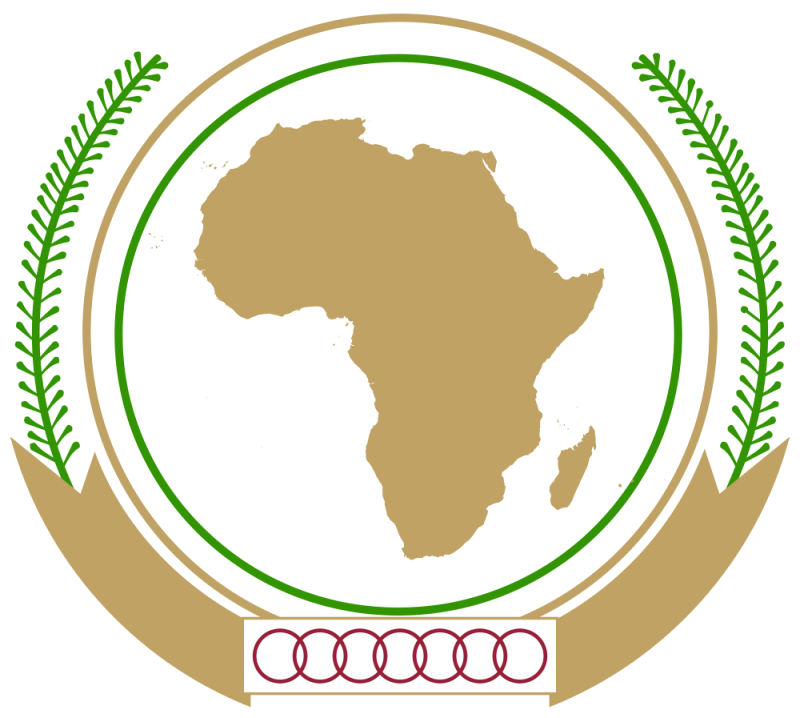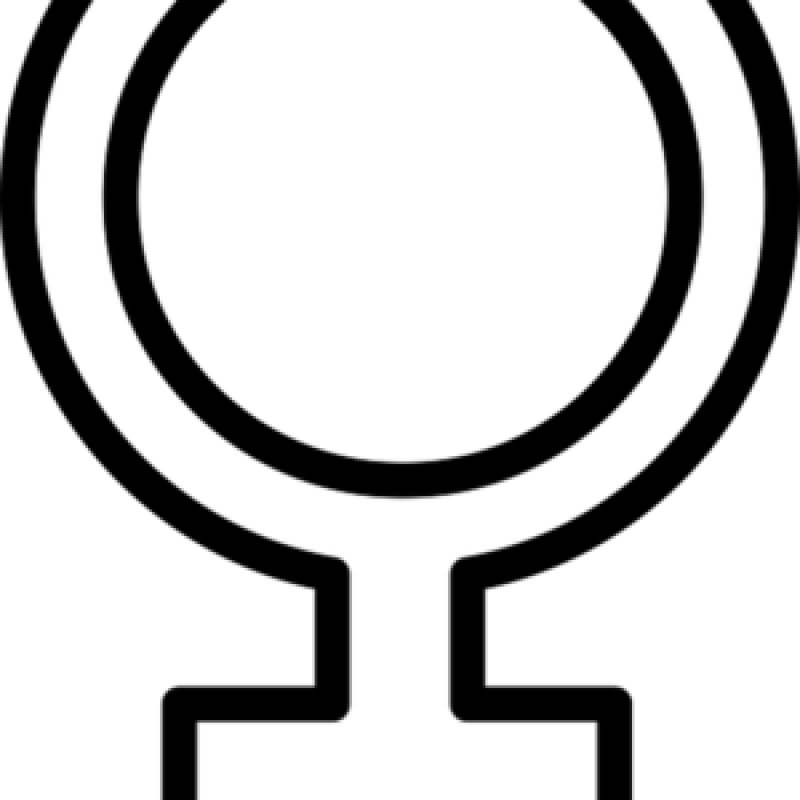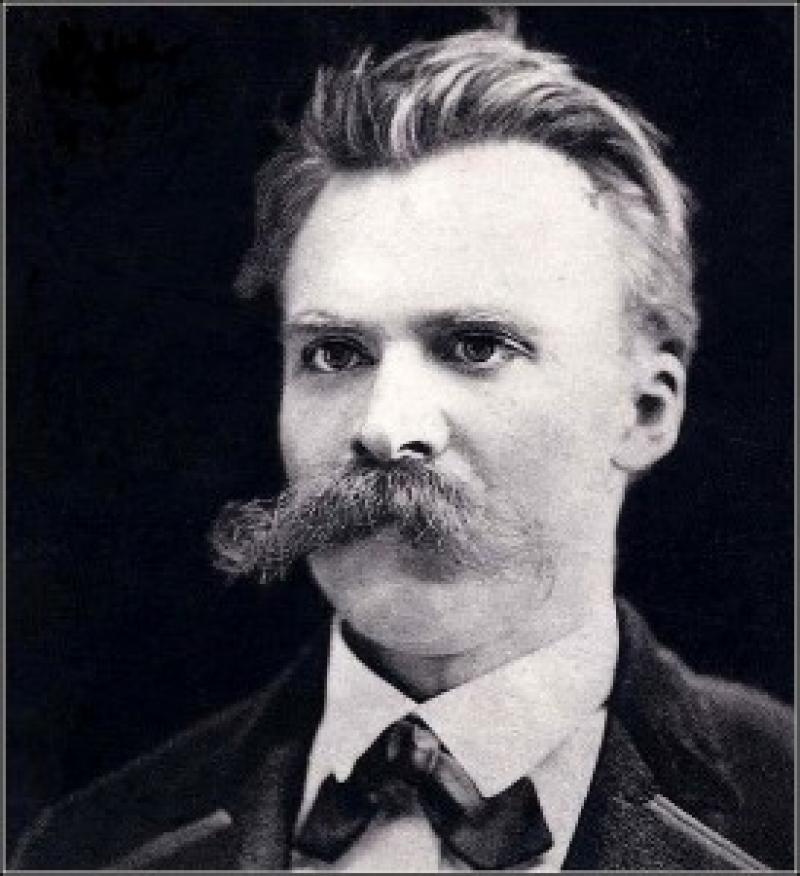New course! 3245: Radicalization, Deradicalization, Countering Violent Extremism (Offered Fall 2021)
Semester | 3 credit units
Far from being eradicated, radicalization and violent extremist organizations seem to be gaining strength. ISIS has lost its territorial Caliphate but remains a significant ideological force with adheres worldwide. Having quietly operated at the fringe for so long, far-right movements have reemerged as powerful forces in mainstream politics internationally, calling for violence. The first section of this course aims to give the students a basic understanding of the causes conducive to radicalization, a complex psychological process that prompts individuals to take on violence- depending on their individual motivations- to attain political goals, to channel their individual or group frustration, to regain self-esteem and become a member of a tight-knit community, or to self-sacrifice in the name of a supposedly divine mission.
The second section of the course focuses on the opposite processes of deradicalization, counter-radicalization, and disengagement, that is, moving away from radical attitudes and behaviors and returning to peaceful life. Consideration of psychological theories and mechanisms will be complemented with practical considerations of how deradicalization programs have been developed and what they can ethically and legally hope to achieve. The third and final section of the course will look at the policy space of countering violent extremism (CVE) and learn about different government and civil society approaches to combatting radical appeals and making communities more resilient to radical appeals. Students will consider international case studies of a broad spectrum of non-violent approaches to CVE that local governments, civil society groups, and even private individuals have developed.
New course! 4305: International Theory

Semester | 3 credit units
‘International theory’ is concerned with theoretical reflection on the explanatory, ethical, and legal aspects of international politics. In this course we will focus initially on the explanatory aspect, but with growing emphasis on ethics and law as the semester progresses. Part I deals with the traditional problem of international life, of maintaining peace in an anarchic system among states relatively equal in power. Part II calls the assumption of anarchy into question by looking at hierarchical structures in the international system between the North and South. Part III addresses the rise of the individual as a subject of world politics, and especially the ethical challenges of global governance that this creates. Throughout, an effort will be made to illustrate the relevance of theoretical debates for the real world, but in the end this is a course about ideas not information, and students will be evaluated accordingly.
New topic! 4597.02: Conflict and Development
New topic! 4597.02H: Illicit Markets and Organized Crime
Semester | 3 credit units
Despite efforts by states to prevent trade in certain goods, illicit markets thrive in a variety of contexts. To make sense of the prevalence of such markets, as well as their impacts on important social, political, and economic issues, this course provides an overview of the development and organization of domestic and transnational markets for illegal goods. This course examines social scientific and popular work on the development of markets for various illegal goods, as well as the ways in which black market trafficking of humans, natural resources, drugs, weapons, and protection affect outcomes such as order, violence, welfare, and development.
Menu:
2. Subfield courses:
2B. Comparative Politics courses
2C. International Relations courses
2E. Methods courses
Pre-major courses
1100 and 1100H: Introduction to American Politics
 Semester | 3 credit units
Semester | 3 credit units
This course is an introduction to the institutions, processes, and influences of American government, politics, and political behavior. The first part of the course will focus on political elites, discussing the history and theories of American democracy, as well as its political institutions (Congress, Executive, and Judiciary). In the second half of the course, we will shift gears and focus on mass political behavior and interests (public opinion, contemporary political debates, voting and campaigns and elections).
This course is available for EM credit. GE soc sci orgs and polities course. SS Admis Cond course.
Prereq for 1100H: Honors standing, or permission of instructor.
Archived syllabus: Autumn 2012 [pdf]
1200 and 1200H: Introduction to Comparative Politics
 Semester | 3 credit units
Semester | 3 credit units
This is a course that introduces students to politics as it takes place outside the United States. The emphasis is on the big questions of the day: How should democracy be structured? How do countries confront the challenges of economic development, inequality, ethnic and racial cleavages, or nation building? What are the politics that make possible transitions from authoritarianism to democracy? And how are different authoritarian political systems structured? The class will address questions of this nature in the context of an analysis of selected wealthy and poor countries around the world.
This course is available for EM credit. GE soc sci orgs and polities and diversity global studies course.
Prereq for 1200H: Honors standing, or permission of instructor.
Archived syllabus: 1200 Autumn 2013 [pdf]
1300 and 1300H: Global Politics
 Semester | 3 credit units
Semester | 3 credit units
What are the causes of war? What are the conditions in which people from different parts of the world can work together to tackle common problems such as climate change? This course provides you with the basic theoretical perspectives to address important issues in world politics such as these, and also covers other topics including economic relations, the role of international organizations, and human rights, so that, at the end of the course, you will be able to critically analyze the phenomena in world politics as an informed citizen.
GEC soc sci human, natural, and economic resources and diversity global studies course.
Prereq for 1300H: Honors standing, or permission of instructor.
Archived syllabus: Summer 2013 [pdf]
2150: Voters and Elections
 Semester | 3 credit units
Semester | 3 credit units
Why do people vote? Are non-voters completely disengaged, or simply engaged in other kinds of political activities that they find more satisfying and more likely to affect their lives? This course examines recent research into voting behavior, the election context of voting, and political participation. We will learn why people are turned off of politics, and consider what kinds of changes might be necessary to rekindle the interest of voters and maintain the legitimacy of elections in the future.
GE soc sci indivs and groups course. SS Admin Cond course.
Prereq for 2150H: Honors standing, or permission of instructor.
Archived syllabus: Autumn 2013 [pdf]
2300 and 2300H: American Foreign Policy
 Semester | 3 credit units
Semester | 3 credit units
Today, the United States possesses unrivaled power and influence in international politics. How is this power used? How is U.S. foreign policy developed and implemented? What interests should the United States pursue in key policy areas like terrorism, economic globalization and weapons proliferation? The goal of this course is to equip students with the knowledge and analytical skills needed to answer these questions and to critically evaluate the role of the United States in the world.
GE soc sci orgs and polities and diversity global studies course.
Prereq for 2300H: Honors standing, or permission of instructor.
Archived syllabus: Autumn 2013 [pdf]
2400 and 2400H: Introduction to Political Theory
 Semester | 3 credit units
Semester | 3 credit units
Justice, it is said, requires giving people what they are due – but what exactly are people due? Does justice encompass freedom and equality, or are these often conflicting political values? If so, how do we trade them off against each other? How should a just state distribute the goods that we all need, such as rights and liberties, educational opportunities, and wealth? In addition to studying great philosophical answers to such questions, we will apply those answers to live debates about pressing political questions, for example, regulating sexual conduct, economic markets, affirmative action, environmental sustainability, immigration, and global justice.
GE soc sci orgs and polities course. SS Admis Cond course.
Prereq for 2400H: Honors standing, or permission of instructor.
Archived syllabus: 2400H Autumn 2012 [pdf]
American Politics courses
1105: American Political Controversies
 Semester | 3 credit units
Semester | 3 credit units
Contemporary challenges to fulfilling the promise of American democracy, including such issues as poverty, discrimination, education, health, environment, and public participation.
2150: Voters and Elections
 Semester | 3 credit units
Semester | 3 credit units
Why do people vote? Are non-voters completely disengaged, or simply engaged in other kinds of political activities that they find more satisfying and more likely to affect their lives? This course examines recent research into voting behavior, the election context of voting, and political participation. We will learn why people are turned off of politics, and consider what kinds of changes might be necessary to rekindle the interest of voters and maintain the legitimacy of elections in the future.
GE soc sci indivs and groups course. SS Admin Cond course.
Prereq for 2150H: Honors standing, or permission of instructor.
Archived syllabus: Autumn 2013 [pdf]
2367 and 2367H: Contemporary Issues in American Politics
 Semester | 3 credit units
Semester | 3 credit units
Discussion of and critical writing about controversies in contemporary American politics; aimed at fostering analytical abilities in reading comprehension, oral, and written expression.Topics vary.
Prereq for 2367: 101 or 300, and English 110 or 111, and Soph standing; or permission of instructor. GE writing and comm course: level 2 and soc sci orgs and polities course.
Prereq for 2367H: Honors standing, and 101 or 300, and English 110 or 111, and Soph standing; or permission of instructor. GE writing and comm course: level 2.
Archived Syllabus - Quarter Course: 367.01
3115: Introduction to Policy Process
 Semester | 3 credit units
Semester | 3 credit units
This course provides students with an introductory overview of the policy-making process, paying particular attention to the actors who play a pivotal role in crafting public policies and the institutions through which they interact. Note that this is not a course on policy analysis. Rather, it is a course about the politics behind successful policy change (and the pitfalls of policy failure). The objective of the course is to encourage students to think like strategic political operatives, who can take idealistic policy goals and design strategies to translate these goals into law.
Archived syllabus: Spring 2014 [pdf]
3170: Political Psychology
 Semester | 3 credit units
Semester | 3 credit units
Introduces students to political psychology, its development from parent disciplines, its topics and problems, its research results and methods, and their applications to current affairs.
3905: Political Manipulation
 Semester | 3 credit units
Semester | 3 credit units
Examines how political actors manipulate the rules and the salience and availability of information to shift political outcomes in their favor.
4110: The American Presidency
 Semester | 3 credit units
Semester | 3 credit units
Political Science 4110 The American Presidency introduces the student to the state of the art in contemporary scholarship on the executive branch in the United States. To coincide with the 2016 presidential primary elections, the Spring 2016 offering of the course will focus especially on presidential campaigns. By the end of the course, successful students will have mastered a range of topics, including the historical and contemporary party nomination processes, the role of campaign organizations and outside interests in presidential elections, and voter decision making.
Archived Syllabus - Quarter Course: 501
4115: Bureaucracy and Public Policy
 Semester | 3 credit units
Semester | 3 credit units
This course provides students with an in-depth understanding of how statutes are implemented by the U.S. federal government. A central theme of the course is that, contrary to popular perception, much lawmaking takes place outside the hallways and chambers of Congress and occurs instead in executive agencies of the federal bureaucracy and in the courts. This course examines the often-neglected black box of bureaucratic rulemaking, with a consideration of their role in several areas of public policy implementation.
Archived syllabus: Autumn 2013 [pdf]
4120: U.S. Congress
 Semester | 3 credit units
Semester | 3 credit units
Analysis of legislatures and legislators, with a focus on the U.S. Congress and some attention to state legislatures and representative assemblies in other countries.
GE soc sci orgs and polities course.
Archived Syllabus - Quarter Course: 517
4125: American State Politics
 Semester | 3 credit units
Semester | 3 credit units
States play a critical - although often underappreciated - role in American democracy. They help pay for essential public services, administer safety net programs for vulnerable residents, and often serve as a source of innovation in public policy, generating new ideas that eventually become adopted by the national government. In this course, we will examine state politics and policymaking in a comparative context, paying particularly close attention to the importance of state institutions, the role of voters, and the intergovernmental dynamics across and within states.
Prereq: 1100 (101) or 3100 (300) or permission of instructor.
Archived syllabus: Spring 2015 [pdf]
4126: Ohio Politics
 Semester | 3 credit units
Semester | 3 credit units
This course examines the formal institutions of Ohio government - executive, legislative, and judicial - and the political processes and actors that shape Ohio politics and politics - elections, political parties and interest groups. Students will gain a basic knowledge of the nuts and bolts of Ohio government, and should be able to analyze the performance of Ohio's government, explaining how and why Ohio government has performed effectively and ineffectively.
Archived syllabus: Autumn 2013 [pdf]
4127 and 4127H: Governing Urban America

Semester | 3 credit units
In this course, students will watch HBO's "The Wire" and complete readings that address the key themes of the show. In particular, we will focus on: (1) the major problems facing urban communities; (2) the economic, social and political forces that have shaped their development; (3) the structure and role of government in addressing urban problems; and (4) the major participants and stakeholders in city politics.
Prereq for 4127H: Honors standing. Not open to students with credit for 4127.
Archived syllabus: Spring 2015 [pdf]
4130: Law and Politics
 Semester | 3 credit units
Semester | 3 credit units
This class examines the intersection of law, politics, and political science. We will look at a variety of major issues — ranging from voter ID laws and voting machine technology to campaign finance and gerrymandering — that affect the way that elections and politics work. We will also carefully analyze the legal decisions that govern the electoral process and the academic research aimed at influencing policymakers and judges. Students will need to complete the assigned readings on time, come to class ready to discuss the material, work in groups to compose a legal brief, and argue their case before a mock Supreme Court.
Archived syllabus: Autumn 2015 [pdf]
4132H: Supreme Court Decision Making
 Semester | 3 credit units
Semester | 3 credit units
This course is about explanation of the decisions made by the U.S. Supreme Court. Students will use theories and explanations for Court decisions to conduct a research project and predict justices' positions in current cases.
Prereq: Honors standing or permission of instructor.
Archived syllabus: Autumn 2013 [pdf]
4135: American Constitutional Law
 Semester | 3 credit units
Semester | 3 credit units
Archived syllabus: Autumn 2013 [pdf]
4136: Civil Liberties
 Semester | 3 credit units
Semester | 3 credit units
An examination of the civil liberties decisions by American courts, their legal and political bases, and their effects on government and society.
Archived Syllabus - Quarter Course: 519
4137: The Politics of Legal Decision Making
 Semester | 3 credit units
Semester | 3 credit units
An examination of the literature relating social-science theories and research to the law, focusing on the criminal justice system.
4138: Women and the Law
 Semester | 3 credit units
Semester | 3 credit units
This course examines legal issues that are especially relevant to women, issues that range from abortion to employment discrimination. We will consider this set of issues because of their importance in themselves and as a means to illuminate the workings of government and politics. The course material will focus on three aspects of these issues: the content of major legal rules affecting women and the development of those rules over time; the forces that shape those legal rules; and the impact of those rules on the situations of women and on society generally.
Archived syllabus: Autumn 2013 [pdf]
4139: Gun Politics
 Semester | 3 credit units
Semester | 3 credit units
The phrase “gun politics” refers to the views of different people within a particular country as to what degree of control (increased gun rights vs. greater gun control) should be enforced upon the private ownership and use of firearms, to what extent firearms ownership influences crime, and how best to achieve a balance of power between the individual and the state.
In America today there are some 300+ million firearms in private hands, amounting to one weapon for every American. Two in five American homes house guns. On the one hand, most gun owners are law-abiding citizens who believe they have a constitutional right to bear arms. On the other, a great many people believe gun control to be our best chance at reducing violent crime.
This course will examine gun control through historical, legal, and sociological lenses. Upon completion of the course students will have a better understanding of how truly multi-faceted and complex the issue is and, thus, why consensus is so difficult to achieve.
Archived syllabus: Spring 2015 [pdf]
4140: Black Politics
 Semester | 3 credit units
Semester | 3 credit units
Economic, political, and social constraints on the development of black political power; the efforts made by black people in recent times to organize for effective political action.
Prereq: Not open to students with credit for 504 or AfAmASt 4504 (504). Cross-listed in AfAmSt.
Archived Syllabus - Quarter Course: 504
4150: American Political Parties
 Semester | 3 credit units
Semester | 3 credit units
This course will study the role and behavior of the three parts of American political parties – the party organization, the party in the electorate (the voters supporting the parties), and the party in government (party members in the three branches of government) – and their interrelationships and competition throughout American history. With particular attention to the upcoming 2016 election campaigns, it will focus on how American parties have changed in recent years and what these changes mean for American politics.
GE soc sci orgs and polities course.
Archived syllabus: Spring 2014 [pdf]
4152: Campaign Politics
 Semester | 3 credit units
Semester | 3 credit units
The organization and strategy of American political campaigns; practical politics seen in the light of knowledge about political behavior and public opinion.
4160: Public Opinion
 Semester | 3 credit units
Semester | 3 credit units
What is public opinion? Where does it come from? How does it change? What does it matter? In this course we will attempt to answer these questions using the results of scientific studies and our own insights. We will explore the landscape of opinion on a variety of political topics, attempting to find out what the public thinks about these issues, and more importantly, why they think the way they do. We will also try to find out how a person's political opinions influence their behavior, and whether or not political leaders pay any attention to, or manipulate, "the will of the public."
Archived syllabus: Autumn 2014 [pdf]
4164: Political Participation and Voting Behavior
 Semester | 3 credit units
Semester | 3 credit units
Why do some people participate in politics, while others choose to abstain? How do people decide for whom to vote – and are they informed enough to make this decision? In this course, we will delve into key controversies in political participation and voting behavior in the United States. In particular, we will focus upon topics such as: who votes, who doesn’t, and why? What encourages participation, and what suppresses it? What role has the Internet and other new technologies had in changing the way we interact with the political world? Throughout the semester, we will challenge the conventional understanding of these issues by focusing upon leading empirical evidence, as well as the testimonies of several experts in the field.
Archived syllabus: Autumn 2014 [pdf]
4165: The Mass Media and American Politics
 Semester | 3 credit units
Semester | 3 credit units
We like to think of ourselves as well-informed citizens - yet almost everything we know about politics we know only secondhand. The media acts as our only window into the political world, and as such, understanding how that window works is of central importance to understanding the actions and beliefs of both our leaders and ourselves. Students will understand how modern American political messages are designed, how they influence the public, and how this changes the behavior of the political elite.
Archived syllabus: Autumn 2012 [pdf]
4175: Women, Government, and Public Policy
 Semester | 3 credit units
Semester | 3 credit units
An examination of policymaking on gender-related issues and the impact of women in government.
Prereq: Not open to students with credit for 513 or WGSSt 4513 (513). Cross-listed in WGSSt.
4190: Political Decision Making and Public Policy
 Semester | 3 credit units
Semester | 3 credit units
Analysis of decision-making processes considering welfare, education, economic, and environmental policy.
4891 and 4891H: Topics in American Politics
 Semester | 3 credit units
Semester | 3 credit units
Selected topics in American politics; topics vary by section and instructor.
Repeatable to a maximum of 6 cr hrs.
Prereq for 4891H: Honors standing or permission of instructor. Repeatable to a maximum of 12 cr hrs.
Archived syllabus: Autumn 2012 [pdf]
4920 and 4920H: Politics in Film & Television

Semester | 3 credit units
Political films and TV shows often convey an understanding of the political world. How films portray the political process may influence society's attitudes toward politicians and government. Students will compare the portrayal of politics in film and TV to the reality as understood through political science. This is not part of the Film Studies major and does not count toward requirements.
Prereq for 4920: Not open to students with credit for 4920H.
Prereq for 4920H: Honors standing. Not open to students with credit for 4920.
Archived syllabus: Autumn 2014 [pdf]
Comparative Politics courses
3220: Politics of the Developing World
 Semester | 3 credit units
Semester | 3 credit units
The international system is characterized by tremendous inequality, and the gaps between the poorest and wealthiest countries commonly grow larger and larger. This class asks, given this, what is a developing country to do? That is, what are the political strategies, institutions, and problems that shape whether rapid economic and social development is possible, or whether poverty, marginalization, and malgovernance are likely to remain endemic. The course covers experiences selected from around the developing world (from Africa, Asia, Latin America, and even the European periphery), and is organized around three periods: (1) the post-war boom from the 1945 to the mid-1970s, (2) the return of free-market economics in the 1980s-90s, and (3) the contemporary era for financial globalization and crisis. This is a class about the politics of development, and no formal economics training is presumed.
GE soc sci human, nat, and econ resources and diversity global studies course.
Archived syllabus: Autumn 2015 [pdf]
3596 and 3596H: Nationalism and Ethnicity

Semester | 3 credit units
4210: Politics of European Integration
 Semester | 3 credit units
Semester | 3 credit units
A survey of the politics of European integration since the Second World War; topics include theories of political integration, institutions of the EU, its policies and decision making, common currency, and internal and external relations.
4212: From Dictatorship to Democracy in Spain, Portugal, Italy and Greece
 Semester | 3 credit units
Semester | 3 credit units
This course presents a comprehensive overview of government and politics in Greece, Italy, Portugal and Spain. Specifically, the course will be organized around two complementary sets of questions: what were the causes of political instability and the weakness of democratic institutions and practices in the past, and how might the legacy of those political divisions affect the functioning of the current democratic regimes?
GE soc sci orgs and polities and diversity global studies course.
Archived syllabus: Autumn 2014 [pdf]
4214: Politics of Northern Europe
 Semester | 3 credit units
Semester | 3 credit units
Survey of politics in selected countries of Northern Europe, including Britain, France, Germany, and the smaller European democracies; themes include social welfare, corporatism, parties, and party systems.
Repeatable to a maximum of 6 cr hrs.
4216: Politics of Eastern Europe
 Semester | 3 credit units
Semester | 3 credit units
Systematic comparison of the sources, dynamics, and outcomes of political, economic, and social transformations in the former Communist countries of Eastern Europe.
Archived Syllabus - Quarter Course: 530
4218: Russian Politics
 Semester | 3 credit units
Semester | 3 credit units
This course will give students an introduction to the politics of the Russian Federation, with emphasis on democratization, economic reform, institutional development, elites, mass behavior, and ideology. Is "democracy" evolving in Russia? If so, how, and what are the impediments to it? Is a "civil society" being formed in Russia? Is Russia becoming a nation of laws with properly functioning political and legal institutions? Or is Russia reverting to its "Soviet" past?
Archived Syllabus: Autumn 2013 [pdf]
4219: European Political Development
 Semester | 3 credit units
Semester | 3 credit units
This course examines the origins of contemporary crisis in Europe. Topics include the politics of immigration and the rise of radical far-right parties; the reinvention of social democracy and the resulting counter-revolution of the far-left; a financial crisis that has crippled some countries while allowing others to pick up the pieces relatively quickly; and the increasingly contentious issue of how to incorporate women equally into political and economic life.
4232: Contemporary Politics of South Asia
 Semester | 3 credit units
Semester | 3 credit units
A survey of the politics of South Asia since 1947; topics include the development and consolidation of democracy, the role of social cleavages in politics, and economic development and reform.
Archived Syllabus - Quarter Course: 539
4236: Southeast Asian Politics
 %231.png) Semester | 3 credit units
Semester | 3 credit units
Government and politics in the Philippines, Indonesia, Indo-China, Malaysia, Thailand, Burma; problems of this region in relation to world politics.
Archived Syllabus - Quarter Course: 636
4240: Latin American Politics
 Semester | 3 credit units
Semester | 3 credit units
This course serves as in introduction to Latin American politics, and it is organized thematically to cover a broad swath of countries. The course provides a historical overview and theoretical debates surrounding many political, economic, and social actors and events in the region. It also analyzes the quality of democracy and the current problems and political developments Latin America. Students will engage critically, analytically, and thoughtfully with theories in political science and developments in the scholarship of Latin American Politics.
Archived syllabus: Autumn 2015 [pdf]
4241: Special Topics in Latin American Politics
 Semester | 3 credit units
Semester | 3 credit units
Examination of contemporary political challenges confronting Latin America in the twenty-first century, including globalization, poverty, inequality, and democratic consolidation. Topics vary.
Repeatable to a maximum of 6 cr hrs.
4242: Incomplete Democracies
 Semester | 3 credit units
Semester | 3 credit units
Explores various forms of violence including electoral violence and political assassination, organized crime, police brutality, and other human rights abuses in Latin America.
Prereq: Soph standing or above. Not open to students with credit for 542 or IntStds 4242 (542). Cross-listed in IntStds.
4249: Domestic Politics of International Conflict
 Semester | 3 credit units
Semester | 3 credit units
Archived Syllabus - Quarter Course: 579
4250 and 4250H: African Politics

Semester | 3 credit units
An introductory survey of Sub-Saharan African politics from the pre-colonial period to the contemporary era. It will examine the common themes, issues, and trends that shape politics and development across forty-nine countries. Students will gain an understanding of how context shapes political behavior and how historical and political forces have influenced African politics.
Prereq: Not open to students with credit for 4597.02 (Au13, African Politics), 4250H, or AfAmASt 4250. GE soc sci orgs and polities and diversity global studies course. Cross-listed in AfAmASt.
4270: The Canadian Political System
 Semester | 3 credit units
Semester | 3 credit units
The Canadian political system, including institutional, behavioral, socio-economic, cultural, and ideological components, often in comparison with the United States' political system.
Archived Syllabus - Quarter Course: 527
4280: State and Economy
 Semester | 3 credit units
Semester | 3 credit units
Introduction to comparative political economy; relations between the state and the economy, politics and markets, and democracy and capitalism; the consequences of state intervention.
Archived Syllabus - Quarter Course: 580
4282: The Politics of Income Inequality
 Semester | 3 credit units
Semester | 3 credit units
Introduces fundamental politics of income inequality and redistribution, including social policy development, redistributional policy differences between countries, and popularity of differing welfare programs.
4285: The Comparative Politics of the Welfare State
 Semester | 3 credit units
Semester | 3 credit units
Analyzes different kinds of welfare capitalism including social, economic, and political considerations shaping welfare policy; and contemporary welfare reform as an exercise in reallocation, reogranization, and budget-cutting.
4597.02: Political Problems of the Contemporary World
 Semester | 3 credit units
Semester | 3 credit units
Critical problems of industrialized and developing societies, including governmental legitimacy, conflict and violence, social welfare, equality, and economic development. Topic varies by semester.
Current topic: Conflict and Development. Over the past ten years, the United States has led major nation-building efforts in Afghanistan and Iraq, while contributing to scores of stabilization, development, and peacebuilding missions in fragile and conflict-affected regions around the world. Common to these diverse missions is the attempt to lay the foundations for long-term growth in areas that still suffer from the threat of violence. The course will examine these topics with questions such as: What interventions are most successful at enhancing human wellbeing and creating economic opportunities in such environments? And which ones can make things worse by distorting incentives or disturbing fragile governing bargains? What lessons have been learned about how to improve governance, enhance stability, and support economic development in conflict zones?
4597.02H: Political Problems of the Contemporary World
 Semester | 3 credit units
Semester | 3 credit units
Critical problems of industrialized and developing societies, including governmental legitimacy, conflict and violence, social welfare, equality, and economic development. Topic varies by semester.
Current topic: Illicit Markets and Organized Crime. Despite efforts by states to prevent trade in certain goods, illicit markets thrive in a variety of contexts. To make sense of the prevalence of such markets, as well as their impacts on important social, political, and economic issues, this course provides an overview of the development and organization of domestic and transnational markets for illegal goods. This course examines social scientific and popular work on the development of markets for various illegal goods, as well as the ways in which black market trafficking of humans, natural resources, drugs, weapons, and protection affect outcomes such as order, violence, welfare, and development.
Prereq: Jr or Sr standing. GE cross-disciplinary seminar.
4892 and 4892H: Topics in Comparative Politics
 Semester | 3 credit units
Semester | 3 credit units
Selected topics in comparative politics; vary by section and instructor.
Repeatable to a maximum of 6 cr hrs.
Prereq for 4892H: Honors standing or permission of instructor.
4940: The Politics of Immigration
 Semester | 3 credit units
Semester | 3 credit units
Provides overview of international migration phenomenon: patterns of international migration, reasons for immigration, acceptance of immigrants by governments and public, dynamics of anti-immigrant sentiment.
International Relations courses
2300 and 2300H: American Foreign Policy
 Semester | 3 credit units
Semester | 3 credit units
Today, the United States possesses unrivaled power and influence in international politics. How is this power used? How is U.S. foreign policy developed and implemented? What interests should the United States pursue in key policy areas like terrorism, economic globalization and weapons proliferation? The goal of this course is to equip students with the knowledge and analytical skills needed to answer these questions and to critically evaluate the role of the United States in the world.
GE soc sci orgs and polities and diversity global studies course.
Prereq for 2300H: Honors standing, or permission of instructor.
Archived syllabus: Autumn 2013 [pdf]
3910: Identity Politics

Semester | 3 credit units
The concept of identity is a central one in the social sciences. Each of us possesses a number of identities – national, ethnic, religious, racial, gender, sexual, professional, etc. – that are extremely influential in determining how we perceive, think, and act. Unsurprisingly, then, all of the social sciences, and political science in particular, have had to contend with the concept of identity. This course is meant to introduce you to the concepts and theories political scientists use to make sense of identity politics. In addition, this course seeks to enable you to appreciate the impact of identity dynamics in history, contemporary events, and most importantly, in your everyday lives. The ability to identify and analyze the origins, reproduction, and effects of the various identities that compose the social matrix within which we live is an important capacity that anyone who is interested in becoming an agent of change in his or her society should possess.
4300: Theories of International Relations
 Semester | 3 credit units
Semester | 3 credit units
This course introduces students to the major theoretical issues and paradigms in the field of international relations, including realism, liberalism, and constructivism. These perspectives will be used as theoretical lenses to examine the current age of US primacy, how others are reacting to it, and what comes next.
Prereq: 1300 (145).
Archived syllabus: Autumn 2014 [pdf]
4305: International Theory

Semester | 3 credit units
‘International theory’ is concerned with theoretical reflection on the explanatory, ethical, and legal aspects of international politics. In this course we will focus initially on the explanatory aspect, but with growing emphasis on ethics and law as the semester progresses. Part I deals with the traditional problem of international life, of maintaining peace in an anarchic system among states relatively equal in power. Part II calls the assumption of anarchy into question by looking at hierarchical structures in the international system between the North and South. Part III addresses the rise of the individual as a subject of world politics, and especially the ethical challenges of global governance that this creates. Throughout, an effort will be made to illustrate the relevance of theoretical debates for the real world, but in the end this is a course about ideas not information, and students will be evaluated accordingly.
4310: Security Policy
 Semester | 3 credit units
Semester | 3 credit units
National security and military policy issues and trends since 1945; covers containment, deterrence, Vietnam, nuclear weapons, terrorism, and globalization.
Archived Syllabus - Quarter Course: 552
4315: International Security and the Causes of War
 Semester | 3 credit units
Semester | 3 credit units
This course examines various issues regarding international conflict and cooperation, including theories of strategic interaction and the causes of war.
Archived syllabus: Autumn 2012 [pdf]
4318: The Politics of International Terrorism
 Semester | 3 credit units
Semester | 3 credit units
Examines international terrorism's concepts and actors, the motivations and causes of terrorism, the experience of the United States, and tensions between freedoms and security.
Archived Syllabus - Quarter Course: 548
4320: Strategies for War and Peace
 Semester | 3 credit units
Semester | 3 credit units
This course examines common strategies in foreign policy and the factors that explain why countries pursue them. It pays special attention to the ways in which countries seek to affect change and advance their interests, and the implications these have for war and peace. The course examines both the track-records of different strategies and the conditions under which they have been found to work. It also covers the different ways in which the process of decision-making has been understood and explores what is known about the factors that have the biggest impact on the course countries follow.
Archived syllabus: Autumn 2015 [pdf]
4327: Politics in the Middle East
 Semester | 3 credit units
Semester | 3 credit units
Politics of Arab-Israeli relations, Perisan Gulf, Islamic fundamentalism, and oil; processes of change and their effects on governments and international relations.
Archived Syllabus - Quarter Course: 546
4330: Global Governance
 Semester | 3 credit units
Semester | 3 credit units
In the past two decades, global governance has emerged as a central challenge in world politics. This course will examing the emergence and various forms of global governance, including questions of legitimation, democratization, and enforcement; as well as collective security, humanitarian intervention, and proliferation. The course will focus particularly on the ways in which global governance relates to violence and the use of force.
Archived syllabus: Spring 2013 [pdf]
4331: The United Nations System
 Semester | 3 credit units
Semester | 3 credit units
Activities and potential of the United Nations system in promoting economic well-being, environmental management, resource sharing, social justice, and control of violence.
Archived Syllabus - Quarter Course: 551
4332: Politics of Globalization
 Semester | 3 credit units
Semester | 3 credit units
Examines globalization's origins, impacts on human welfare, and political conflicts that arise from it, including actions of governments, multinational corporations, and the anti-globalization movement.
4335: International Environmental Politics
 Semester | 3 credit units
Semester | 3 credit units
Theories and debates over sustainable development, environment, and security, and effectiveness of international regimes with a focus on international fisheries management and global climate change.
4380 and 4380H: Political Analysis of International Economic Relations
 Semester | 3 credit units
Semester | 3 credit units
Many important facets of our daily lives are influenced by the global economy (trade, currency trading, capital flows). This course examines the relationship between political and economic events in the international system and the manner in which governments seek both to shape the global economy and respond effectively to the constraints and opportunities it provides. Topics include global interdependence, inequality, scarce resources, and periphery nation strategies.
Prereq for 4380H: Honors standing or permission of instructor.
Archived Syllabus: Autumn 2013 [pdf]
4381: Comparative International Political Economy
 Semester | 3 credit units
Semester | 3 credit units
A survey of foreign economic policies followed by European and other advanced industrial economies since the Napoleonic Wars, with a special emphasis on Britain, France, Germany, the United states, and Japan.
Archived Syllabus - Quarter Course: 554
4597.01 and 4597.01H: International Cooperation and Conflict
 Semester | 3 credit units
Semester | 3 credit units
An examination of the relationships industrialized countries have with each other and developing nations; focus on potential for cooperation and conflict.
Prereq for 4597.01: Jr or Sr standing. GE cross-disciplinary seminar.
Prereq for 4597.01H: Honors and Jr or Sr standing. GE cross-disciplinary seminar.
Archived syllabus: Spring 2014 [pdf]
4893 and 4893H: Topics in International Politics
 Semester | 3 credit units
Semester | 3 credit units
Selected topics in international politics; topics vary by section and instructor.
Repeatable to a maximum of 6 cr hrs.
Prereq for 4893H: Honors standing or permission of instructor
Archived syllabus: Autumn 2013 [pdf]
4895 and 4895H: Topics in Public Policy
 Semester | 3 credit units
Semester | 3 credit units
Selected topics in international politics; topics vary by section and instructor.
Repeatable to a maximum of 6 cr hrs.
Prereq for 4895H: Honors standing or permission of instructor.
Political Theory courses
2400 and 2400H: Introduction to Political Theory
 Semester | 3 credit units
Semester | 3 credit units
Justice, it is said, requires giving people what they are due – but what exactly are people due? Does justice encompass freedom and equality, or are these often conflicting political values? If so, how do we trade them off against each other? How should a just state distribute the goods that we all need, such as rights and liberties, educational opportunities, and wealth? In addition to studying great philosophical answers to such questions, we will apply those answers to live debates about pressing political questions, for example, regulating sexual conduct, economic markets, affirmative action, environmental sustainability, immigration, and global justice.
GE soc sci orgs and polities course. SS Admis Cond course.
Prereq for 2400H: Honors standing, or permission of instructor.
Archived syllabus: 2400H Autumn 2012 [pdf]
3420: Political Theories of Democracy
 Semester | 3 credit units
Semester | 3 credit units
An examination of theories of democracy, focusing on normative and descriptive dilemmas such as participation versus liberty in democratic societies.
Prereq: 2400 (210).
3430: Political Theories of Freedom
 Semester | 3 credit units
Semester | 3 credit units
This course provides a survey of the various ways in which the value of human freedom has been invoked and pursued in political life. Topics of discussion will include the relationship between freedom and democracy, between “political” and “market” freedom, and between freedom and the necessary conditions for its enjoyment. Anarchist, feminist, liberal, libertarian, postmodern, republican and socialist perspectives will be considered.
Prereq: 2100 (210).
Archived syllabus: Autumn 2014 [pdf]
3440: Political Theories of Justice
 Semester | 3 credit units
Semester | 3 credit units
Focuses on debates among political theorists about the meaning of justice; "What is justice?" and "How might we order our world justly?"
Prereq: 2400 (210).
3450: Ethics and Public Policy
 Semester | 3 credit units
Semester | 3 credit units
Contemporary approaches to public policy evaluation and their ethical foundations, including efficiency, security, rights, welfare, and equity. This course will give students the basic knowledge of contemporary public policy approaches and will provide critical tools to evaluate the ethical implications of specific policy positions.
Archived syllabus: Autumn 2013 [pdf]
3460: Global Justice

Semester | 3 credit units
Is it possible to achieve global justice? What would such a world look like and what does this tell us about how to live today in our own unjust world? These important questions motivate this political theory course about the possibility of justice between states and among the people of the world. Our first unit considers leading analytic frameworks, starting from Kant’s influential 1795 essay Perpetual Peace before considering a variety of contemporary approaches. To show that these questions are not idle or utopian, the course examines particular issue areas relevant to political debates today. Subsequent units look closely at poverty, trade, and sweatshops; global environmental issues; immigration, indigenous people, and the legacy of colonialism; and global governance and accountability. Throughout, we will connect these issues to each other as well as to newsworthy developments in global politics today.
4455: Human Rights
 Semester | 3 credit units
Semester | 3 credit units
Examines human rights, including the United Nations Declaration on Human Rights; coercive enforcement of rights; as well as hunger, violence, persecution, and economic rights.
4465: Feminist Political Theory

Semester | 3 credit units
Examines concepts in feminist political theory including the articulation of feminism, the subjects of feminist theory, the relation of race, class and sexuality to gender experience, and the use of feminist theory to transform conceptions of justice.
Prereq: Not open to students with credit for WGSSt 4465. Cross-listed in WGSSt.
4894 and 4894H: Topics in Political Theory
 Semester | 3 credit units
Semester | 3 credit units
Selected topics in international politics; topics vary by section and instructor.
Repeatable to a maximum of 6 cr hrs.
Prereq for 4894H: Honors standing or permission of instructor.
5412: Early Modern Political Thought
%20%231.jpg) Semester | 3 credit units
Semester | 3 credit units
Why do we have government? What are the proper limits of its authority? What should we do when its demands conflict with our moral or religious beliefs? These questions lie at the center of early modern political thought, and gave rise to the idea of the “social contract.” The problems addressed by these thinkers include the problem of defining the conditions under which the exercise of political power is legitimate, striking the right balance between individual freedom and the common good, and controlling a selfish and potentially violent human nature. Taken together, these texts provide the theoretical underpinnings for modern liberal democracies.
Prereq: Not open to students with credit for 471 or 6412 (671).
5413: 19th Century Political Thought

In the 19th century the hierarchies that had traditionally dominated European politics were collapsing: kings had been overthrown or seen their powers sharply limited, feudal aristocracies were dying off, the working class was enfranchised, and democratic government was becoming the order of the day. In this course we will examine some of the earliest and most influential attempts to wrestle with the practical implications of living in a world where people were not only considered equal in theory, but were becoming equal in fact. Topics of discussion will include the relationship between liberty and equality, individualism and conformity, alienation and exploitation, and morality and power.
Methods courses
3549: Survey Research in Political Science

Semester | 3 credit units
The conducting of public opinion polls.
3780: Data Literacy and Data Visualization

Semester | 3 credit units
Most social science debates can be addressed with data, and sources of data are growing exponentially. This course introduces students to tools of data analysis and principles behind their use in the context of social-science applications.
4192: Policy Analysis
 Semester | 3 credit units
Semester | 3 credit units
An analysis of the policy process emphasizing the determinants of public policy, theories of public choice, and the implementation, impact, and evaluation of policy decisions.
4553: Game Theory for Political Scientists
 Semester | 3 credit units
Semester | 3 credit units
Provides entry-level understanding of the basic concepts of game theory and how these concepts are applied to the study of political phenomena.
Archived Syllabus - Quarter Course: 587
4780: Thesis Research Colloquium

Semester | 3 credit units
This research colloquium is designed for students who are planning to graduate with Research Distinction or Honors Research Distinction as part of their BA or BS in Political Science or their BA in World Politics. The colloquium is targeted to students at the earliest stages of thesis research, generally second semester juniors, and gives them the opportunity to explore in depth a topic of their choice in Political Science, broadly understood. Over the course of the semester, students learn how to formulate a viable research question, determine the appropriate method for investigating the question, conduct good research, provide constructive feedback to colleagues, and, finally, to turn their research into a term paper of 10,000-12,000 words.
4781 and 4781H: Techniques of Political Analysis
 Semester | 3 credit units
Semester | 3 credit units
This course is an introduction to the ways in which social scientists leverage quantitative data to answer questions about human behavior and society. Students will learn how to critically evaluate social scientific research and will get hands-on experience in analyzing data. This course also trains students to use the R statistical software, which is used for all analyses.
Prereq for 4781: One course in political science at the 300 level or above. GE data anly course.
Prereq for 4781H: Honors standing or permission of instructor. One course in political science at the 300 level or above, and Math 150. GE data anly course.
Archived syllabus: Autumn 2015 [pdf]
4782: Research Methods in Political Science
 Semester | 3 credit units
Semester | 3 credit units
Our focus in this course will be on research questions and the methods we can use to answer them. Key to understanding the “how” of research is a good grasp of basic statistics and probability theory, which we will review briefly, and model estimation, on which we will spend several weeks. The second section of the course is meant to illuminate research methods at work. We will do this through reading and discussion of political science articles that apply the methods we’ve discussed in class and through your development and presentation of an original research project to address a research question of your choosing. The overall goal is that by the end of the course you will have learned the mathematics and assumptions that underpin social science models, allowing you to be a more critical consumer of published information both in the social sciences and in the world at large.
Archived syllabus: Autumn 2015 [pdf]
Other courses
4191: Internship
 Semester | 3 credit units
Semester | 3 credit units
Combines experience in political institutions or policy processes with analysis of that experience in light of relevant scholarly literature.
Prereq: Permission of instructor. Repeatable to a maximum of 9 cr hrs or 3 completions.
Top of page
[pdf] - Some links on this page are to Adobe .pdf files. PDF files require the use of Adobe Acrobat Reader software to open them. If you do not have Adobe Acrobat Reader, you may use the following link to Adobe to download it for free at: Adobe Acrobat Reader
